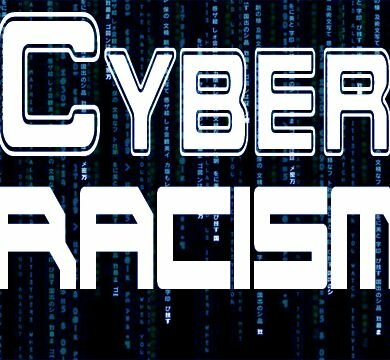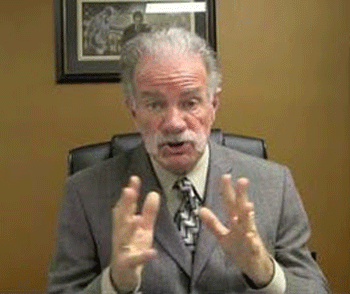Cyber racism on college campuses
Education, Featured, Talk About Race — By Jessie Daniels on May 4, 2010 at 08:59Originally published on Racism Review
Racism on college campuses these days often spreads through email or via popular social networking sites, such as Facebook. This new medium for racist expression is forcing universities to reconsider what it means to provide a safe space on campus for all students. My research on cyber racism indicates that this is a growing problem in the U.S., and a recent incident at the University of Minnesota-Duluth (UM-D) illustrates a few of the relevant issues.
Here’s what happened at UM-D. Two first year students, self-described white girls, began a Facebook wall conversation after an African-American classmate entered the room where they were studying. More on what they typed to each other via the local news in Duluth:
One of the posts read, “ewww a obabacare (sic) is in the room, i feel dirty, and unsafe. keep a eye on all of your valuables and dont make direct eye contact….i just threw up in my mouth right now …”
In another post, one of the women wrote, “were two white girls..she already has her (N-word) instinct to kill us and use us to her pleasure …”
In the past, this sort of conversation between two white students might have happened in handwritten notes passed in class. While some may view such overt expressions of racism a thing of the past, overtly racist comments often occur – even today – in the “backstage” (white-only space), as research by Leslie Pouts-Hicca and Joe Feagin demonstrates. Social media has changed all that now. As more white people spend time online, they forget that the comments they think they’re making in the “backstage” (white-only spaces) are easily made public and shared in the “frontstage” by people who do not share their views (or, have other agendas). As more of these expressions of overt racism come to light, it forces all of us to decide again and again what is socially acceptable and what isn’t, especially on college campuses. The question for colleges and universities is also what can and should be done about incidents like this one?
Many people, like the young man quoted in this article, think that: “If you really do believe in free speech, they shouldn’t be punished.” But “free speech” is not that simple. There are a couple of issues here.
First, the UM-D has an “anti-hate” policy which the white girls clearly violated.
Second, the framers of the U.S. Constitution didn’t have Facebook in mind when they were drafting the First Amendment to protect free speech. No one has a constitutionally protected right to be on Facebook. If you use Facebook, you have to abide by their Terms of Service (TOS) agreement which prohibits overtly racist speech (although it’s only sporadically enforced). If ‘we’ – all of us, users of Facebook – allow it there, we’re condoning a return to overt racism of Jim Crow.
In my view, the white girls at UM-D who racially harassed their African American classmate deserve some kind of punishment from the university. To address this sort of behavior, I want to suggest that ‘human rights’ is a better, more useful frame for dealing with cyber racism than ‘censorship’ and ‘free speech.’
There are no reports that I’ve been able to find (interesting fact in itself) about what the African American student who was the target of this racism has to say. I’ll bet that her experience of college life (+ life in general) has been damaged in some way by this run-in with her two white ‘friends.’ At the very least, she has a new awareness of that her college campus is just a little less ’safe’ from racism than it was before. In some ways, it’s not surprising that this African American student’s story is not being reported. As critical race scholars have pointed out, the ‘victims’ story is almost never told. Our understanding of “free speech” shifts when we listen to these stories.
In 2003, the Supreme Court of the U.S. ruled that a burning cross is *NOT* protected speech (Virginia v. Black). Part of that ruling declared that a “burning cross has no value in a democracy” because it is not meant to be a discussion, but it’s a symbol meant to racially terrorize a group of people. (Today, 14 states have anti-cross burning laws.) So, not all speech counts as “protected speech,” and the Supreme Court has already ruled that racist speech in the form of a burning cross, can be ruled illegal. Given the rise of social media, the question becomes: what constitutes a burning cross in the digital era?
I think what those white girls did on FB was akin to cross burning in the digital era. That kind of speech is harmful and it has no value for democracy.
There are real, material consequences from racism. Children who experience racial discrimination feelpsychological stress that may lead to depression. Likewise, there are real, material consequences from actions that seem to be exclusively digital. The tragic case of Phoebe Prince, who was harassed online and offline (and called an “Irish slut”) and then took her own life is a case in point. Perhaps not surprisingly, minority college students report more experiences of online bias than do whites.
Yet, whites like these two white college students at UM-D, say overtly racist online and very few step up to challenge them because of misplaced belief in what kind of speech the First Amendment protects. Americans are quick to say “free speech” (1st amendment) is an ideal that trumps equal protection under the law (14th amendment), but most other democracies see “speech” and “equal protection” as two values that always need to be balanced against each other. I discuss this argument at length in my bookCyber Racism – which I wrote in many ways as challenge to (white) liberal friends who often seem hamstrung by misunderstandings of the first amendment and free speech. The solution is not to abandon free speech as principle, but to shift the discussion to a consideration for how we balance the 1st and 14th amendments, balance between free speech and equal protection.
Given this re-framing of “free speech,” it seems clear to me that a college campus should be a place where we want to protect all of our students from the intentional infliction of emotional distress at the same time we encourage a lively exchange of ideas.
Tags: cyber racism, Facebook racism, whites, Women, youthAuthor: Jessie Daniels (4 Articles)

Jessie Daniels, PhD, author and professor at Hunter College in New York City. She's recognized as a national expert on white racism, was featured in Elizabeth Thompson’s Emmy-award winning documentary “Blink,” about a supposedly reformed white supremacist. She's a frequent contributor to the blog Racism Review. Since I co-founding the blog in 2007 with Joe R. Feagin (former president of the American Sociological Association), Racism Review



 Share This
Share This Tweet This
Tweet This Digg This
Digg This Save to delicious
Save to delicious Stumble it
Stumble it





 The Grinch who stole Eid
The Grinch who stole Eid Creativity for the count
Creativity for the count The racial politics of Avatar
The racial politics of Avatar Race and recession
Race and recession







